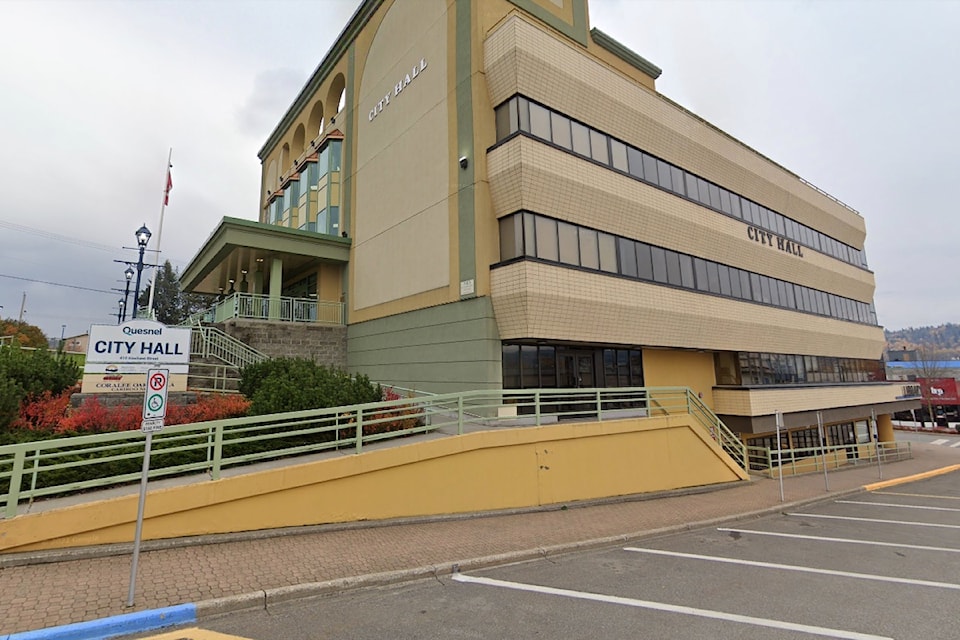Health
Psychiatrist Urges Action for New Psychiatric Hospital in Northern B.C.

A psychiatrist from Prince George has called on Quesnel council to support the establishment of a new psychiatric hospital in Northern British Columbia. Dr. Barb Kane, head of psychiatry at the University Hospital of Northern B.C. (UHNBC), emphasized the urgent need for a dedicated facility to alleviate severe overcrowding and provide long-term care for patients with serious mental health issues.
During a council meeting this week, Kane highlighted the significant impact of the closure of Riverview Hospital in 2012, which has left British Columbia as the only province in Canada without a secure long-term psychiatric facility. “Many of us have come to the conclusion that a psychiatric hospital is an essential part of the health-care system,” Kane stated. “And right now, we don’t have one.”
The current situation at UHNBC is dire. Kane reported that patients expected to stay for an average of two weeks frequently remain in the hospital for years due to a lack of appropriate facilities. One patient, for example, was hospitalized for almost five years. This overcrowding is causing ripple effects throughout the hospital, leading to delays in elective surgeries. “You can’t tell a suicidal patient or someone brought in psychotic by police to come back next week,” she explained, noting that elective surgeries are often postponed when surgical beds are unavailable.
The impact of the closure of Riverview is evident, with patients who would have received months or years of treatment there now remaining in Prince George, often exceeding the hospital’s capacity. “We are keeping people with a level of violence that we were not built for,” Kane said. She recounted how some patients express feelings of insecurity on the ward, highlighting the dangerous mix of individuals with varying mental health needs.
Kane also pointed out that the provincial forensic psychiatric hospital in Port Coquitlam is currently overwhelmed, only accepting court-ordered cases. This situation leaves jails struggling to manage offenders who develop mental health issues while in custody, sometimes resulting in the release of individuals who remain untreated. “We keep them for as long as we can, but we can’t keep people forever,” she noted, emphasizing the moral distress faced by staff forced to discharge patients who still pose risks to themselves and others.
Smaller community-based facilities have also been inadequate, particularly in managing violent patients. Kane remarked that Riverview never needed to involve police when incidents of violence occurred, as it had trained psychiatric teams and sufficient staff to handle such situations.
To address these challenges, Kane and a group of advocates have initiated a petition calling for the establishment of a psychiatric hospital in Northern B.C. One potential site is the now-closed Prince George Youth Custody Centre. Kane argues that the facility already features locked units, outdoor spaces, and program rooms that could be adapted for patient care. “It’ll probably be cheaper than building a whole new hospital,” she stated. “But something has to happen. Things are not going to get better if we don’t do this.”
Council member Scott Elliot, whose wife is a nurse at the local hospital, expressed his support for Kane’s call to action. “And quite honestly, at times it scares the heck out of me what’s taking place when my wife is getting Code White training to be able to learn how to defend herself and others. It’s frightening,” he said. Code White training is a violence prevention and de-escalation program designed for healthcare workers.
Another council member, Laurey-Anne Roodenburg, emphasized the need for collaboration among all health authorities in the province. “To say, ‘Listen, something needs to change,’” she said. Roodenburg acknowledged that while she does not have a specific solution at this moment, progress will require a concerted effort from all stakeholders. “It’s going to have to be a big push from everybody,” she added.
As the call for a dedicated psychiatric facility in Northern B.C. gains momentum, the pressing issues of overcrowding and inadequate care for severely ill patients remain at the forefront of the conversation. The need for decisive action has never been more critical.
-

 Science3 months ago
Science3 months agoToyoake City Proposes Daily Two-Hour Smartphone Use Limit
-

 Top Stories3 months ago
Top Stories3 months agoPedestrian Fatally Injured in Esquimalt Collision on August 14
-

 Health3 months ago
Health3 months agoB.C. Review Reveals Urgent Need for Rare-Disease Drug Reforms
-

 Technology3 months ago
Technology3 months agoDark Adventure Game “Bye Sweet Carole” Set for October Release
-

 World3 months ago
World3 months agoJimmy Lai’s Defense Challenges Charges Under National Security Law
-

 Lifestyle3 months ago
Lifestyle3 months agoVictoria’s Pop-Up Shop Shines Light on B.C.’s Wolf Cull
-

 Technology3 months ago
Technology3 months agoKonami Revives Iconic Metal Gear Solid Delta Ahead of Release
-

 Technology3 months ago
Technology3 months agoApple Expands Self-Service Repair Program to Canada
-

 Technology3 months ago
Technology3 months agoSnapmaker U1 Color 3D Printer Redefines Speed and Sustainability
-

 Technology3 months ago
Technology3 months agoAION Folding Knife: Redefining EDC Design with Premium Materials
-

 Business3 months ago
Business3 months agoGordon Murray Automotive Unveils S1 LM and Le Mans GTR at Monterey
-

 Technology3 months ago
Technology3 months agoSolve Today’s Wordle Challenge: Hints and Answer for August 19









